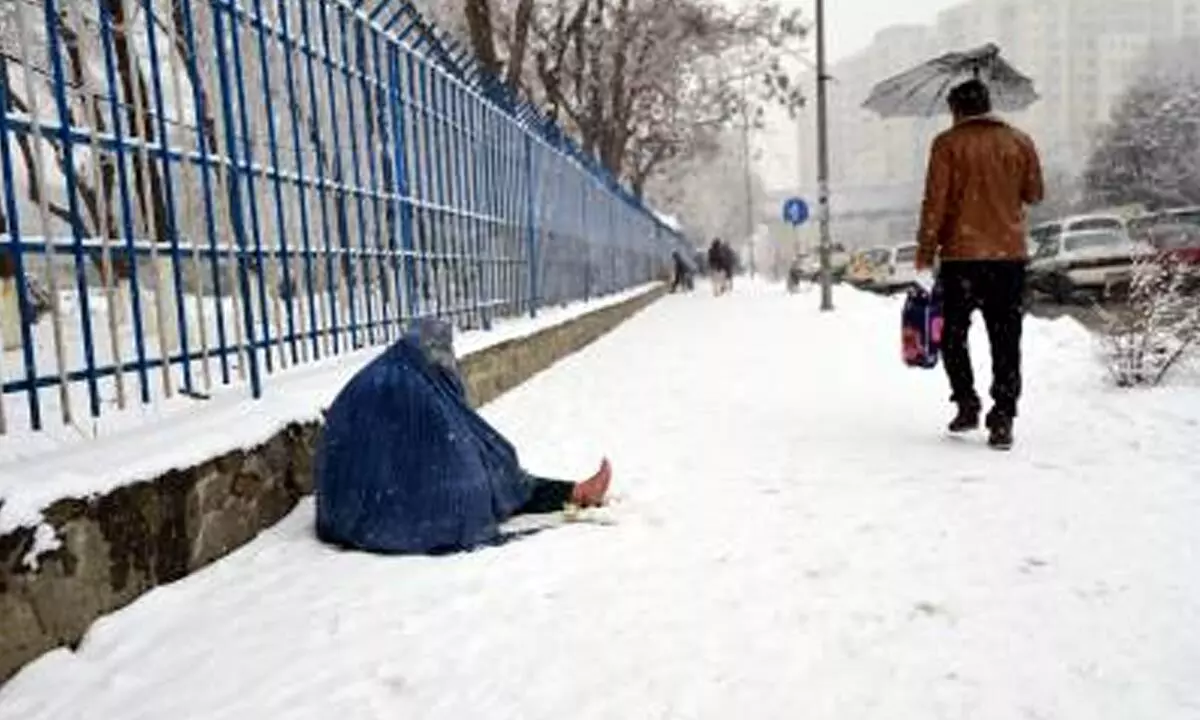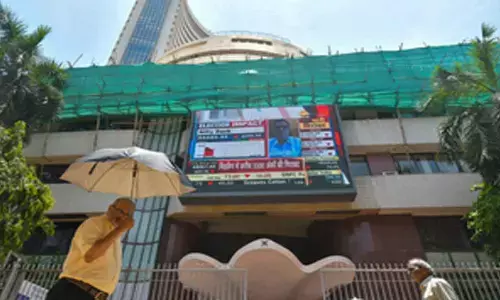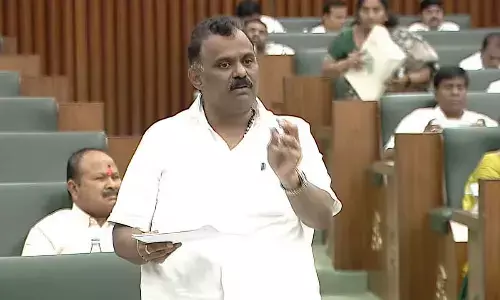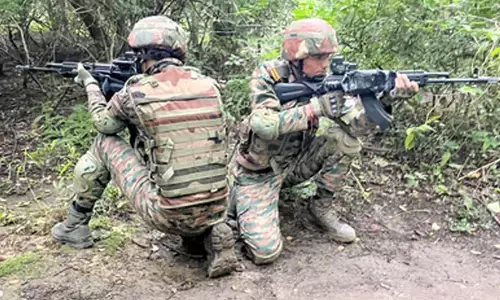Freezing weather kills 124 in Afghanistan
Share :

Freezing weather kills 124 in Afghanistan
The Taliban-led government in Afghanistan has confirmed that at least 124 people have been killed across the country due to the freezing weather.
Kabul: The Taliban-led government in Afghanistan has confirmed that at least 124 people have been killed across the country due to the freezing weather.
While confirming the fatalities, a spokesman for the State Ministry for Disaster Management said that about 70,000 livestock had also perished in what has been deemed as the coldest winter in a decade, reports the BBC.
Acting Minister of Disaster Management Mullah Mohammad Abbas Akhund told the BBC that many areas of Afghanistan were now completely cut off by snow; military helicopters had been sent to the rescue, but they couldn't land in the most mountainous regions.
Akhund said the forecast for the next 10 days indicated temperatures would warm. But he was still worried about a rising death toll of Afghans, and their livestock.
"Most of the people who lost their lives to the cold were shepherds or people living in rural areas. They didn't have access to healthcare," the Minister told the BBC.
"We're concerned about those who are still living in the mountain regions. Most of the roads which pass through the mountains have been closed due to snow. Cars have got stuck there and passengers have died in the freezing temperatures."
Winters are always harsh in Afghanistan but this is the worst weather in a decade.
This year's relief operations have been hampered by last month's Taliban government edict barring Afghan women from working in aid agencies.
But Mullah Akhund categorically said that the edict could not be lifted and the international community had to accept Afghanistan's Islamic culture.
"Men are already working with us in the rescue effort and there is no need for women to work with us. The men from every family are already participating in relief efforts, so there's no need for women," he told the BBC.
Aid officials, including the UN, are urgently trying to find ways to work around this ban.








